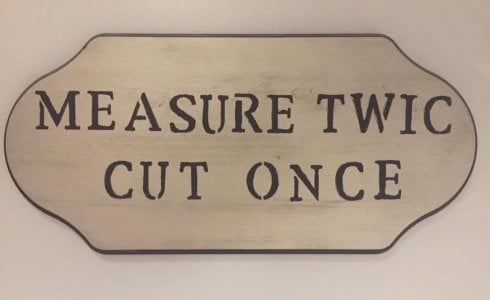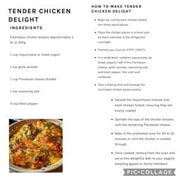Businesses eyeing more competitive discounts over customer loss concerns, NAB poll says
By
VanessaC
- Replies 15
In a surprising turn of events, Australian businesses are gearing up to offer significant discounts to consumers, according to a recent survey by the National Australia Bank (NAB).
This unexpected move could provide much-needed relief to Australians grappling with the rising cost of living.
The NAB survey, which included approximately 1,000 businesses across various industries and regions, indicated that they are becoming increasingly concerned about losing customers.
As a result, they are preparing to slash prices, meaning shoppers could soon be paying significantly less at the checkout.
Alan Oster, NAB's Chief Economist, explained, 'We're seeing quite a big cutback.'
This comes after the pandemic and the ensuing supply chain bottlenecks caused business costs to skyrocket, leading to increased prices for consumers and a surge in inflation.
However, as supply chain issues begin to resolve and pressures ease, businesses are starting to reduce retail prices in line with their decreasing costs.
'Cost and price growth measures continued to moderate gradually,' NAB said.
The survey results revealed a gradual moderation in cost and price growth measures.
'Purchase costs grew at 1.2 per cent (down from 1.4 per cent in Q3).'
'Labour cost growth was 1.2 per cent (from 1.8 per cent in Q3).'
'Final product price growth was 0.7 per cent (quarter on quarter, down from 0.9 per cent in Q3) with retail price growth easing to 0.9 per cent (down from 1.1 per cent).'
These lower prices are already impacting company profits.
Oster explained: 'Profitability in the September quarter was plus-11 and in December it was plus-five, and you get negative numbers when you talk about retail profitability.'
So, why are businesses suddenly prioritising lower prices over profits?
According to Oster, it's because they're increasingly focused on retaining market share and customers rather than boosting their profits. This shift in strategy is likely due to concerns about the short-term business outlook.
'We ask questions about the outlook, and what we've seen for the next three months is quite a big reduction in expectations for business conditions.'
'Expected business conditions fell to +12 index points at a 3-month horizon, down from +17 index points in Q3, and forward orders turned negative at -3 index points,' the NAB survey read.
Capacity utilisation, which refers to whether businesses are operating in top gear, reportedly 'fell but remained elevated at 83.5 per cent'.
'It's telling me business is basically worried about the short-term outlook,' Oster added.
Oster believes this is the inevitable result of rising interest rates.
As rents and mortgage repayments increase, consumers start looking for bargains, and businesses respond by offering discounts.
'You see it in things like household goods,' he said.
'[Businesses] can't get their lounges and couches and all that sort of stuff off the shelf. You can't sell them, so therefore you discount them.'
This is good news for those concerned about inflation, including the Reserve Bank.
The question now is when the RBA might consider cutting interest rates.
Investment firm Deutsche Bank suggested a 0.25 percentage point rate cut in May was 'a material possibility'.
However, Oster believes this would be premature. He expects rate cuts to start towards the end of the year, possibly in November.
Economist Rae Dufty-Jones concurred with Oster's predictions, noting that inflation is indeed slowing.
However, she pointed out that the impact of energy prices, a major contributor to business costs, and the implications of changes to stage 3 tax cuts on inflation remain to be seen.
The government needs support from either the opposition or the Greens to pass the stage 3 tax cuts.
The Greens are calling for an increase to JobSeeker payments in exchange for their vote, a proposal that Prime Minister Anthony Albanese appears to be lukewarm about.
'We'll always look at budget measures, but what we won't be doing is trading across different issues,' the Prime Minister said.
'We're focused on this; this stands on its merits.'
 What are your thoughts on these developments? Have you noticed a decrease in prices? Let us know in the comments below.
What are your thoughts on these developments? Have you noticed a decrease in prices? Let us know in the comments below.
This unexpected move could provide much-needed relief to Australians grappling with the rising cost of living.
The NAB survey, which included approximately 1,000 businesses across various industries and regions, indicated that they are becoming increasingly concerned about losing customers.
As a result, they are preparing to slash prices, meaning shoppers could soon be paying significantly less at the checkout.
Alan Oster, NAB's Chief Economist, explained, 'We're seeing quite a big cutback.'
This comes after the pandemic and the ensuing supply chain bottlenecks caused business costs to skyrocket, leading to increased prices for consumers and a surge in inflation.
However, as supply chain issues begin to resolve and pressures ease, businesses are starting to reduce retail prices in line with their decreasing costs.
'Cost and price growth measures continued to moderate gradually,' NAB said.
The survey results revealed a gradual moderation in cost and price growth measures.
'Purchase costs grew at 1.2 per cent (down from 1.4 per cent in Q3).'
'Labour cost growth was 1.2 per cent (from 1.8 per cent in Q3).'
'Final product price growth was 0.7 per cent (quarter on quarter, down from 0.9 per cent in Q3) with retail price growth easing to 0.9 per cent (down from 1.1 per cent).'
These lower prices are already impacting company profits.
Oster explained: 'Profitability in the September quarter was plus-11 and in December it was plus-five, and you get negative numbers when you talk about retail profitability.'
So, why are businesses suddenly prioritising lower prices over profits?
According to Oster, it's because they're increasingly focused on retaining market share and customers rather than boosting their profits. This shift in strategy is likely due to concerns about the short-term business outlook.
'We ask questions about the outlook, and what we've seen for the next three months is quite a big reduction in expectations for business conditions.'
'Expected business conditions fell to +12 index points at a 3-month horizon, down from +17 index points in Q3, and forward orders turned negative at -3 index points,' the NAB survey read.
Capacity utilisation, which refers to whether businesses are operating in top gear, reportedly 'fell but remained elevated at 83.5 per cent'.
'It's telling me business is basically worried about the short-term outlook,' Oster added.
Oster believes this is the inevitable result of rising interest rates.
As rents and mortgage repayments increase, consumers start looking for bargains, and businesses respond by offering discounts.
'You see it in things like household goods,' he said.
'[Businesses] can't get their lounges and couches and all that sort of stuff off the shelf. You can't sell them, so therefore you discount them.'
This is good news for those concerned about inflation, including the Reserve Bank.
The question now is when the RBA might consider cutting interest rates.
Investment firm Deutsche Bank suggested a 0.25 percentage point rate cut in May was 'a material possibility'.
However, Oster believes this would be premature. He expects rate cuts to start towards the end of the year, possibly in November.
Economist Rae Dufty-Jones concurred with Oster's predictions, noting that inflation is indeed slowing.
However, she pointed out that the impact of energy prices, a major contributor to business costs, and the implications of changes to stage 3 tax cuts on inflation remain to be seen.
The government needs support from either the opposition or the Greens to pass the stage 3 tax cuts.
The Greens are calling for an increase to JobSeeker payments in exchange for their vote, a proposal that Prime Minister Anthony Albanese appears to be lukewarm about.
'We'll always look at budget measures, but what we won't be doing is trading across different issues,' the Prime Minister said.
'We're focused on this; this stands on its merits.'
Key Takeaways
- A National Australia Bank (NAB) survey revealed that businesses are prepared to lower prices due to easing cost pressures, with potential discounts expected for consumers.
- Economists suggested that businesses may favour gaining market share over increasing profits in the near term, potentially leading to discounted retail prices.
- Investment analysts forecasted the possibility of an interest rate cut by the Reserve Bank of Australia as early as May, though some speculate it might not occur until the end of the year.
- The economic outlook and policy decisions, including the potential for stage 3 tax cuts and an increase to JobSeeker payments, remain points of discussion and negotiation within the Australian government.









